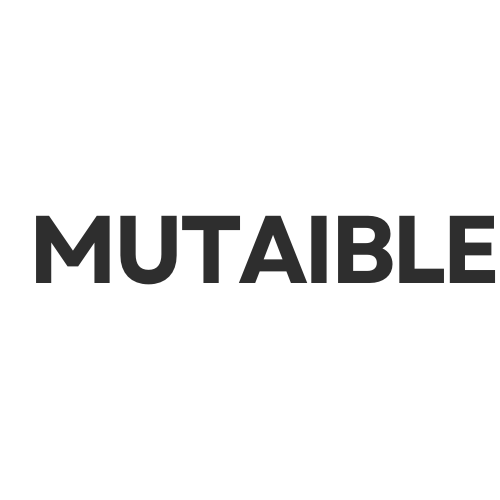What You Need to Do to Survive in the GenAI Era: SEO alone isn't going to cut it
Dec 3, 2024
If you’re still relying on traditional SEO strategies to drive traffic, you’re already falling behind. Generative AI (GenAI) is changing the rules of content discovery and consumption, leaving outdated SEO techniques gasping for relevance. AI tools like ChatGPT, Bard, and others aren’t just reshaping search—they’re rendering your carefully optimized pages invisible. The shift is dramatic, and the stakes are high. Here’s why conventional SEO is no longer enough, how industries like publishing and e-commerce are feeling the squeeze, and what you need to do to survive.
The New Search Paradigm: Goodbye Links, Hello Synthesized Answers
For decades, search engines relied on SERPs (Search Engine Results Pages) to rank content based on keywords, backlinks, and metadata. Businesses optimized their web pages to rank higher and attract clicks, driving traffic and revenue. GenAI tools, however, are flipping this model on its head. Instead of showing users a ranked list of links, these tools synthesize information from multiple sources and deliver direct answers to user queries.
This shift fundamentally disrupts the traffic flow that businesses depend on. According to a 2023 Statista survey, 65% of users prefer interacting with AI-driven chat tools over traditional search engines for quick answers. Worse still, a Pew Research Center report reveals that over 70% of users who query GenAI tools don’t visit the original sources of the information provided. If your content fuels an AI response but doesn’t result in clicks, your site isn’t benefiting—and your revenue suffers.
SEO Tools Are No Match for GenAI
Conventional SEO relies on optimizing for search algorithms—keywords, metadata, and backlinks. But AI models don’t operate like search engines. They’re trained on massive datasets to understand context, quality, and relevance, rather than just ranking factors. When a user interacts with a GenAI tool, the model pulls insights from across the web without considering which site has the best optimization. This fundamentally changes the game.
For example, imagine a local bakery that’s optimized its website for “best bakery in Chicago.” In traditional search, this might drive traffic to their site. But when a user asks Bard or ChatGPT for recommendations, the answer might be synthesized from customer reviews, social media posts, and blogs—not the bakery’s carefully optimized page. The result? The bakery is bypassed, losing potential customers and revenue.
The Real-World Impact Across Industries
The rise of GenAI is having a profound effect on multiple industries, disrupting how they attract and retain customers.
Digital publishers are among the hardest hit. For years, they’ve relied on SEO to drive readers to their content. But with GenAI summarizing articles directly in response to user queries, publishers lose traffic and the ad revenue tied to it. According to the Reuters Digital News Report 2023, 60% of users under 35 now rely on AI tools or social media for news, bypassing traditional websites entirely. A tech site like The Verge, for instance, might invest heavily in a smartphone review, only to see GenAI summarize it without driving clicks back to their page.
E-commerce companies are also feeling the squeeze. Retailers like Best Buy optimize product pages for search terms like “best gaming laptops under $1,500.” Traditionally, this would drive customers to their site. However, a shopper who queries GenAI for the same information now receives an aggregated response based on specs, reviews, and comparisons across multiple retailers. McKinsey & Company reports that 45% of Gen Z and Millennials are turning to AI tools for product research, cutting out the middleman. For retailers, this means fewer clicks, fewer sales, and more frustration.
The travel industry isn’t immune either. Platforms like Tripadvisor rely on SEO-driven traffic for bookings. But GenAI allows users to bypass these platforms entirely. Imagine asking ChatGPT, “What’s the best family-friendly resort in Hawaii?” The AI delivers an answer synthesized from user reviews and articles, but the user never clicks on the original source. Statista projects that AI-generated recommendations will influence 30% of online travel bookings by 2025, forcing platforms to rethink their strategies.
If you are not among these industries, do not think that you are immune. As with everything else the network effects of how everything else is working is going to impact you.
Generative Engine Optimization (GEO) or Model Engine Optimization (MEO)
As we outilined in our earlier blogs here to survive in this new landscape, businesses need to embrace Generative Engine Optimization (GEO). Unlike traditional SEO, which focuses on search engines, GEO is about ensuring your content is discoverable and influential within AI-generated responses. It requires understanding how AI models work during both their training and inference phases.
The first step in adapting to GEO is to prioritize content quality and authority. AI models prioritize reliable, unique, and well-researched sources, so businesses must focus on creating content that adds real value. A healthcare site like WebMD, for instance, could ensure its content is peer-reviewed and fact-checked to remain a trusted source for AI-generated health advice.
Another critical component of GEO is implementing structured data and APIs. Structured data provides AI models with clear context, while APIs allow real-time updates. A real estate platform like Zillow could use APIs to deliver up-to-date property listings and trends directly to AI systems, becoming a default source for housing-related queries.
Finally, businesses need to consider direct partnerships with AI platforms. Instead of fighting AI, they should work with it. Licensing agreements ensure that content used to train AI models is properly attributed and compensated. According to CB Insights, AI companies are expected to spend over $500 million on licensed datasets by 2024. A financial news outlet like Bloomberg could license its premium content to AI tools, ensuring its insights shape responses while generating revenue.
Preparing for the Future of Content Consumption
The changes don’t stop with AI-driven search. Content consumption itself is evolving. Browsers are being replaced by AI agents, which deliver hyper-personalized, just-in-time feeds tailored to individual users. This new modality requires businesses to rethink how they structure and deliver content.
For instance, a fashion retailer could create a dynamic content feed optimized for AI agents, allowing users to receive personalized outfit recommendations in real time. Gartner predicts that by 2027, 80% of consumer-facing businesses will use AI-driven content delivery systems. Companies that fail to integrate their content into these systems will be left behind.
The Bottom Line: Adapt or Be Forgotten
Conventional SEO isn’t just outdated—it’s obsolete. GenAI has transformed the way content is discovered and consumed, and businesses that cling to old strategies will find themselves invisible in this new landscape. To survive, you must embrace Generative Engine Optimization, align your content with AI’s needs, and prepare for the future of AI-driven consumption.
The message is clear: evolve now, or watch your content fade into obscurity. The AI revolution is here—how will your business adapt?



